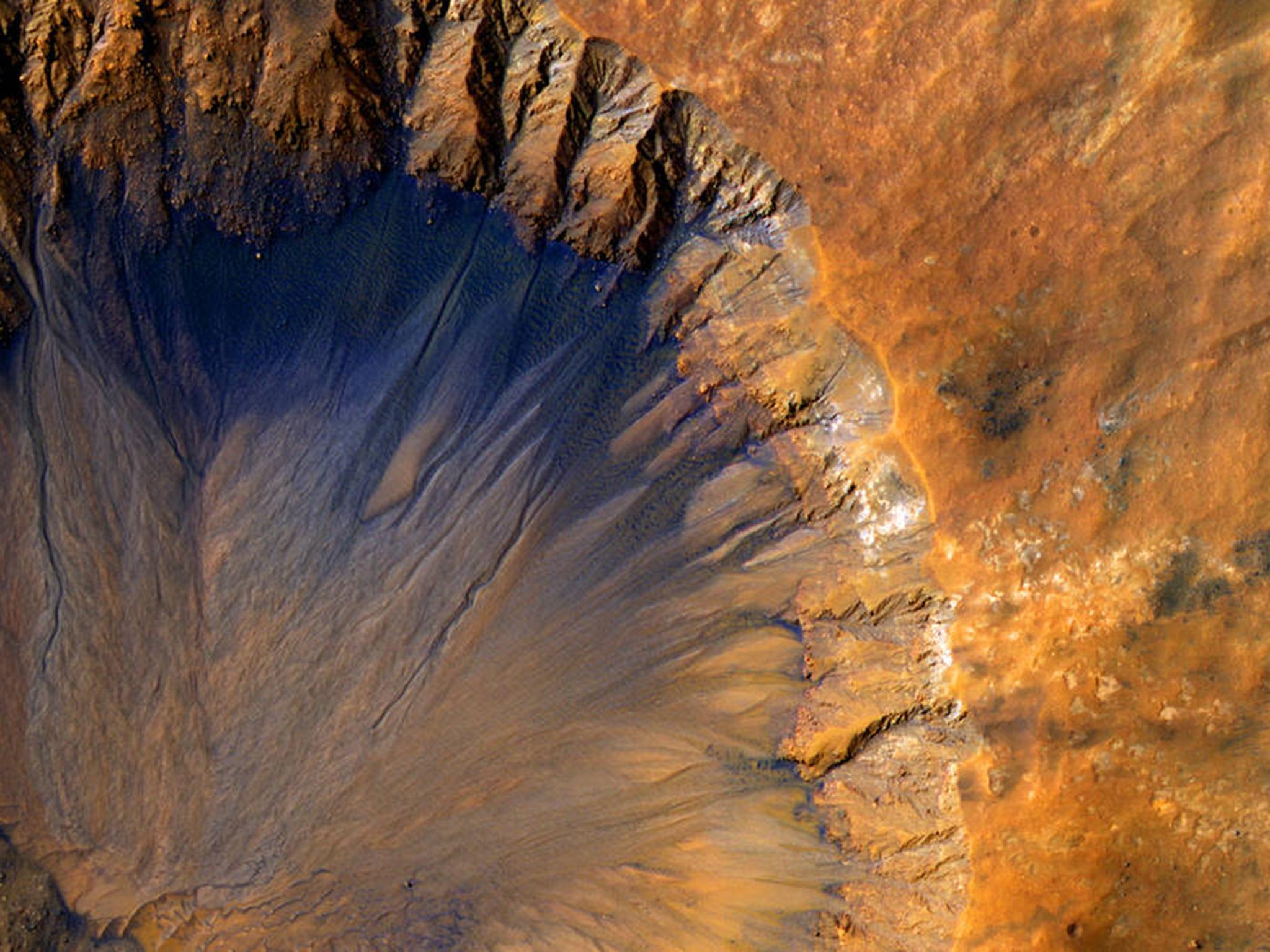Nasa Mars announcement: Agency likely to announce how Red Planet went from more habitable to cold and dry

Your support helps us to tell the story
From reproductive rights to climate change to Big Tech, The Independent is on the ground when the story is developing. Whether it's investigating the financials of Elon Musk's pro-Trump PAC or producing our latest documentary, 'The A Word', which shines a light on the American women fighting for reproductive rights, we know how important it is to parse out the facts from the messaging.
At such a critical moment in US history, we need reporters on the ground. Your donation allows us to keep sending journalists to speak to both sides of the story.
The Independent is trusted by Americans across the entire political spectrum. And unlike many other quality news outlets, we choose not to lock Americans out of our reporting and analysis with paywalls. We believe quality journalism should be available to everyone, paid for by those who can afford it.
Your support makes all the difference.Nasa could be about to announce that Mars once looked a lot like Earth.
The space agency has made a cryptic announcement that it is about to make an announcement about the red planet’s atmosphere. And while it hasn’t said , a list of speakers posted on the agency’s website indicates that it could be revealing new findings about how Mars turned from the wet and warm planet that it once was to the dry, cold and most inhospitable place that it is now.
Nasa said in its announcement only that it would “provide details of key science findings from the agency’s ongoing exploration of Mars”. It said that those announcements would revolve around the “fate of Mars’ atmosphere”.
But a list of speakers indicates that all but one of them is direclt involved with the Mars Atmosphere and Volatile Evolution (Maven) mission. That is a spacecraft that arrived in Mars’s orbit in September 2014, and has been studying the planet’s atmosphere since.
Nasa describes Maven’s job as finding data that scientists can use to “determine the role that loss of volatile compounds—such as carbon dioxide, nitrogen dioxide, and water—from Mars' atmosphere to space has played through time, giving insight into the history of Mars' atmosphere and climate, liquid water, and planetary habitability”.
Four of the speakers at Nasa’s announcement are part of a long list of authors on a paper looking at the way that ions escaped from the planet. It said that the findings due to be delivered will give an estimate of the way that particles have escaped from Mars — and use those to understand the history of the planet itself.
It is likely that today’s announcement is related to that theme, potentially announcing new discoveries about the way that Mars lost its atmosphere. Though Nasa has been making a run of secretive and highly-publicised announcements recently, they are often spoiled by including a list of speakers who are experts in the thing due to be discussed.
The revelation in September that Nasa had found water on Mars, for instance, was discovered in advance because the agency’s speaker list included a number of scientists who had been active in such discoveries in the past and who were named on an online paper discussing the discovery.
Nasa will start its announcement at 2pm eastern time, or 7pm in the UK.
Join our commenting forum
Join thought-provoking conversations, follow other Independent readers and see their replies
Comments